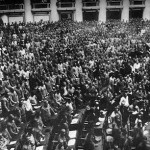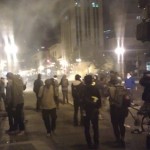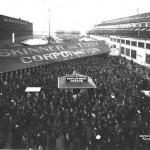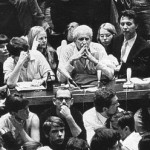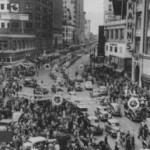
The Night in Which All Cows Are White
Philadelphia has a large population of black, disaffected youth. It also has a black mayor. But when some of these young people began to spontaneously protest the obscene level of urban segregation and systematic poverty of the city with “flash mobs,” it was Mayor Michael Nutter who launched the counter-attack, imposing the disciplinary measure of an earlier curfew in wealthy white areas. Curfews, as George Ciccariello-Maher points out, “have historically served as a racist weapon for the containment of Black bodies” – but Nutter himself made the point by accompanying this measure with an ideological assault on black Philadelphians in general.
Tags: Black Revolutionary Theory and the Peculiarities of American Marxism
 Viewpoint Magazine
Viewpoint Magazine
